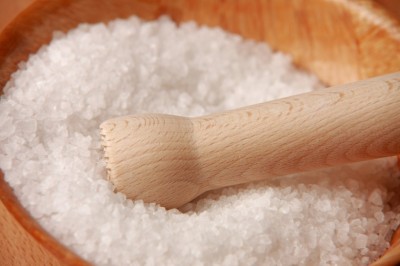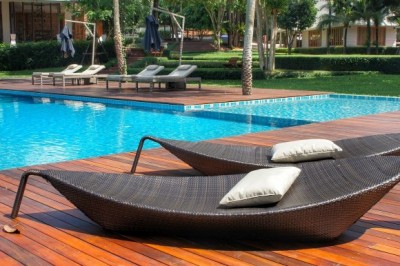Salt chlorinators for swimming pools
I often hear people referring to salt water swimming pools as being chlorine free because they uses salt as a sanitiser. This is not quite correct. A salt water pool produces its own chlorine using electrolysis of a mild salt solution. Why Salt Water ? The human body is made up of a small percentage of salt (Sodium Chloride). A salt solution in the swimming pool of roughly 2.5ppm (parts per million) to 4ppm is virtually tasteless. How does a salt chlorinator work? Because the salt chlorinator is constantly producing chlorine it eliminates the need to regularly buy or add it to the pool. This is a big advantage for pool owners. The amount of chlorine produced will depend on the area of the cell and the amount of current applied to it. When functioning correctly it will continuously produce chlorine. The chlorinator should be correctly sized for your pool, their output is usually displayed in grams per hour. An over sized chlorinator will produce too much chlorine and result in over chlorination of the pool, this can lead to eye irritation and bleaching of togs and bathing suits. If the chlorinator is too small, it will not produce enough chlorine to maintain the residue required to effectively control algae and bacteria. Excessive levels of chlorine may also damage other pool equipment. How do they work? Through the process of electrolysis, the salt solution water passing over the chlorinators generating cell produces chlorine gas that is instantly transformed into Hypochlorous acid. This is the same compound that is formed when any type of chlorine is added to water. Hypochlorous acid is the active sanitiser that kills algae and other harmful bacteria in the pools water. Do i need to do anything else ? Yes - your pools normal water balance must be maintained in order for the salt water chlorinator to work correctly, pH is especially important, as with a chlorine pool because the Hypochlorous acid is more effective at a lower pH (7.0 - 7.4). As with a normal chlorination, a salt water pool should be "shock dosed" regularly to prevent the build up of bacteria that can become resistant to low levels of chlorine. This can be achieved with an active chlorine shock dose, or with many non-chlorine (MSPS) treatments. Are there any hidden costs? The pools water should be tested regularly for salinity, as a low salt content can cause damage to the chlorinator cell. Salt is removed from the pool through backwashing and dilution. The salt water chlorinator requires a small amount of electricity. Modern "self cleaning" salt chlorinators reduce the amount of maintenance required by periodically alternating the direction of charge in the electrode cell, reducing the formation of deposits. Mono-polarity salt water chlorinator will require regular cleaning to remove deposits that form on the electrodes. What are the Benefits? Aside from not having to manually add chlorine daily to the swimming pool to maintain a healthy swimming environment, there is a cost saving of not having to purchase this chlorine. Many salt pool owners comment that their pools are easier to maintain, do not have chlorine odors, the water tastes and feels better. They also do not have to store or transport harmful or dangerous chlorine based products. They are left with more time to enjoy a healthy and sparkling, well sanitized pool with lower ongoing costs. ------ Mike Brunt is a director of Aqua Clear Products and has been involved in the New Zealand pool industry for 15 years with specialist skills in filtration, heating and water chemistry. for more information see www.aquaclear.co.nz for all your pool equipment needs. For a complete range of LED lights for swimming pools




























